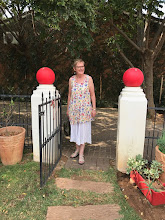 Watch Hiroshima mon amour (1959) with a carefully chosen companion - someone who appreciates the craft of fine movie-making, striking screenplay spoken liquidly in French (with English subtitles), a bittersweet love story and the gaunt simplicity of black and white film.
Watch Hiroshima mon amour (1959) with a carefully chosen companion - someone who appreciates the craft of fine movie-making, striking screenplay spoken liquidly in French (with English subtitles), a bittersweet love story and the gaunt simplicity of black and white film.This unusual movie is no 'dime store romance' to use the words of the main character, a Frenchwoman who finds herself in post-war Hiroshima to make a movie about peace. She is expressively portrayed by the beautiful Emanuelle Riva. Riva was a stage actress at the time and was chosen by the director, Alaim Resnais, almost by accident, to star in the movie. Eijii Okada takes the role of her Japanese lover whom she meets by chance in Hiroshima, a city which has already been restored just 15 years after the atomic explosion. By 1959 the city has become a tourist showpiece fitted with flashing neon lights, a musem which artistically commemorates the atomic explosion, and many other tourist attractions which are beginning to trivialise the catastrophe and all its moral implications.
But could Hiroshima and its inhabitants have forgotten so quickly?
Can anyone dismiss a trauma with the rapid passing of a few years?
This is the question that is played out in this intense love affair. The emotions awakened by her love affair with her Japanese lover in Hiroshima evoke in the Frenchwoman a painful memory, a traumatic story of the war that she has never retold to anyone before. In a series of flashbacks she relates the story of her girlhood love for a young Bavarian soldier during the Nazi Occupation of France. When her lover is shot on the eve of the Liberation, her relationship with him is exposed and she is dragged to the city square to have her head shaven and to be shunned in disgrace.
This is a magnificent movie but it is a not just another Franco-Japanese version of Casablanca. It struck a chord deep within my own heart as I viewed it alone last weekend. Surely it concludes with the most romantic lines on celluloid spoken by two fine actors (screenplay by Marguerite Duras):
" You are Hir-o-shima!"
"And you are Nevers, France!"









